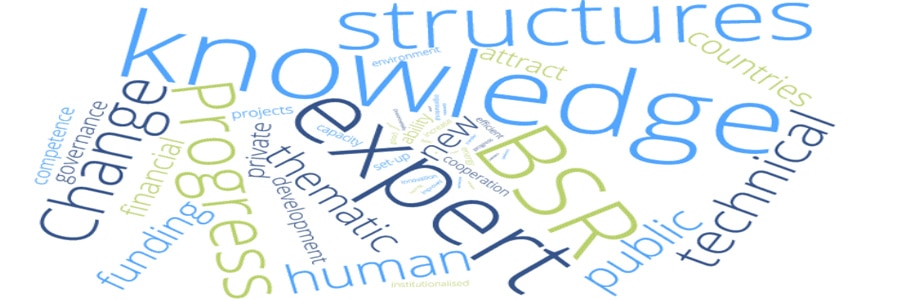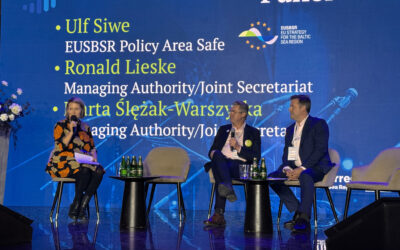Interreg Baltic Sea Region is currently planning the next seven-year programme and considering everything from thematic focus to simplifying paperwork. We first needed an overview of how the region has developed in the past seven years. This report by Spatial Foresight analyses the institutional capacity in the Baltic Sea region in the thematic fields and sectors covered by the Programme.

One aspect we wanted to analyse was the ability of organisations to achieve their goals – “institutional capacity” – because one of the Programme’s aims was to increase institutional capacity in the region. Institutional capacity can take various forms, for example the efficient use of human and technical resources or the ability to attract new financing.
Situation is “overall good”
Spatial Foresight, an external evaluator, completed an analysis on this topic in November 2020. The analysis was based on 76 surveys and 12 in-depth interviews with experts from nine countries. These experts worked in the thematic fields and sectors covered by the Programme. The methodology was the same as the one used in the baseline and mid-term assessments in 2015 and 2018.
The evaluator concluded that institutional capacity in the region was overall good. Within the Programme’s 12 thematic specific objectives, progress was observed in four, stagnation in one, and slight regress in seven. Out of the five types of capacity assessed, organisations’ capability to work in a transnational environment had improved the most.
Have we reached a ceiling?
Experts highlighted that although the general situation was satisfactory to good, further progress was hindered by inequalities between countries and types of territories, such as between capital cities and peripheral areas. They hinted that capacity development had reached a ceiling and was now hampered by structural factors. They pointed to difficulties in establishing knowledge transfer between public and private sectors, developing cross-sectoral approaches, attracting private funding for larger initiatives and spreading benefits equally across the territory.
Using solutions in practice
Experts indicated that knowledge and organisational structures existed but were not fully utilised. In particular, knowledge was not always reaching practitioners. We are keeping this in mind as we plan the next programme: projects will likely focus on testing solutions with their intended users in pilot activities. After the pilot activities, projects should try to get the solutions taken up on a larger scale or in the longer term.
Read the full analysis here.






